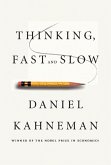Daniel C. Molden, PhD, is Associate Professor of Psychology at Northwestern University. His research examines how activating different motivational mindsets influences the ways in which people (1) gather, integrate, and interpret social information, and (2) pursue, represent, and react to social interactions. His work has been featured in publications such as the Journal of Personality and Social Psychology, the Journal of Experimental Psychology: General, Psychological Science, and American Psychologist. Dr. Molden has held fellowships from the National Institute of Child Health and Human Development and the National Institute of Mental Health, and has received funding for his research from the National Science Foundation.
I. What is "Social Priming"? 1. Understanding priming effects in social
psychology: What is "social priming" and how does it occur?, Daniel C.
Molden 2. On the other side of the mirror: Priming in cognitive and social
psychology, Stéphane Doyen, Oliver Klein, Daniel Simons, & Axel Cleeremans
3. Effects of evaluation: An example of robust "social" priming, Melissa J.
Ferguson & Thomas C. Mann 4. Priming is not priming is not priming, Dirk
Wentura & Klaus Rothermund 5. Structured vs. unstructured regulation: On
procedural mindsets and the mechanisms of priming effects, Kentaro Fujita &
Yaacov Trope II. When and How Social Priming Occurs 6. Prime numbers:
Anchoring and its implications for theories of behavior priming, Ben R.
Newell & David R. Shanks 7. Understanding prime-to-behavior effects:
Insights from the active-self account, S. Christian Wheeler, Kenneth G.
DeMarree, & Richard E. Petty 8. Replicability and models of priming: What a
resources computation framework can tell us about expectations of
replicability, Joseph Cesario & Kai J. Jonas 9. Situated inference and the
what, who, and where of priming, Chris Loersch & B. Keith Payne 10.
Priming: Constraint satisfaction and interactive competition, Tobias
Schröder & Paul Thagard III. Considering New Sources of Social Primes 11.
Grounding social embodiment, Daniël Lakens 12. Priming from others'
observed or simulated responses, Eliot R. Smith & Diane M. Mackie IV. From
the Past of Social Priming to Its Future 13. Evaluating behavior priming
research: Three observations and a recommendation, Ap Dijksterhuis, Ad van
Knippeberg, & Rob W. Holland 14. The historical origins of priming as the
preparation of behavioral responses: Unconscious carry-over and contextual
influences of real-world importance, John A. Bargh 15. Priming . . .
Shmiming: It's about knowing when and why stimulated memory representations
become active, E. Tory Higgins & Baruch Eitam 16. Understanding priming
effects in social psychology: An overview and integration, Daniel C. Molden









